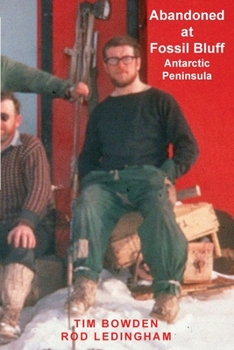Abandoned at Fossil Bluff: Antarctic Peninsula
In the summer of 1967-68, Rod Ledingham was with the British Antarctic Survey (BAS) on the Antarctic Peninsula. High on the polar plateau, he was working as a field assistant to a surveyor, replacing an injured colleague who had to be evacuated. Ledingham had been flown in by a light aircraft, but after their field work had ended, the aircraft crashed on take-off, fortunately with no casualties to the three men and eight husky sledge dogs on board.
With no replacement aircraft available, and communications basic to say the least, the surveyor, his temporary assistant and the pilot had to use Ledingham's dogs to sledge nearly 300 kilometres down a glacier never before traversed, to a small hut at Fossil Bluff on the coast, where two other BAS personnel were waiting to be flown out. So began a year of basic survival, with five men in a summer-season hut designed for four, minimal fuel for cooking, no extra clothing and barely enough food.
After 11 months of complete isolation, the aircraft sent to pick them up got lost in bad weather, and remarkably managed to crash land on sea ice on the Weddell Sea in zero visibility without damage to aircraft or crew, with only 30 minutes of fuel remaining.





